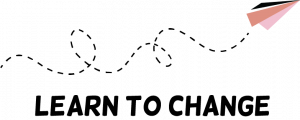
Encouraged by the success of Krea Spring School 2022, the Faculty of Commerce, Hospitality, and Tourism at the Budapest Business School organized a blended intensive program integrated in the Erasmus+ KA2 project Learn to Change. More than 50 European higher education students and nearly 20 teachers were brought together to co-create digital storytelling content to support an off-the-beaten-track destination in Budapest, Margit District.
The main goals of the Budapest BIP 2022 were 1) to discover unknown city spaces away from tourism business districts; 2) to develop participants’ skills to transform their perceptions and experiences into digital content; and 3) to improve their abilities to reach a target audience with a persuasive key message.
Off-the-beaten-track destinations for sustainable and responsible tourism
The Budapest BIP 2022 started with an online module including 3 sessions on 3, 10, and 17 October 2022. Since the participants came from 8 European universities from 6 different countries, the first session was focused on virtual team building. The next session invited participants to learn about why stories are so efficient in peer-to-peer interactions, marketing, and in teaching and learning activities.
The last online session demonstrated the nature of off-the-beaten-track tourism and its role in sustainable and responsible tourism. In contrast to the tourism business districts, off-the-beaten-track tourism mitigates the harmful effects of mass tourism, such as crowded spaces, natural and social exploitation, or alienation. Moreover, it supports micro and family businesses, contributes to local communities, and preserves the genius loci.
Active university-industry stakeholder collaboration
The in-person event of the Budapest BIP 2022 was organized between 24 and 28 October. In the end, 54 students and 18 teachers joined the program, which was very intensive. Participants were co-learning, collaborating, co-creating, and sharing experiences throughout the week.
At the beginning, the participants were provided insight into the Margit District Project, which is a non-governmental and non-profit effort to revitalize and help non-mainstream urban areas. Daniel Ongjerth from Margit District Project Team introduced their project history and highlighted the bottlenecks and cornerstones of urban revitalizing initiatives. Attila Lőrincz, founder and creative director of Doupla, inspired students by digital storytelling best practices in marketing content creation. Lóránt Ónodi, Creative Group Head at Republic introduced his own visions and first-hand experiences with digital storytelling.
During the rest of the week, students worked on their images, video footage, interviews, and personal memories. They had the opportunity to record and shoot their content in the stores of selected associated partners: Kolibri Art Studio Europe (pop-art gallery), Beat on the Brat Vinyl Bar (bar and vinyl store), Margitka Vintage (vintage store and gallery), Easy Art Space (music bar), and Ne pazarolj (zero waste store).
Co-creating digital storytelling – innovative peer learning through trial and error
At the end of the week, all 9 student teams presented their stories about Margit District and their storytelling videos. Students demonstrated their abilities and skills to successfully apply digital storytelling in practice. They had chosen various approaches to accomplish the task: Instagram reels, TikTok channels, and movie-like videos.
Teachers evaluated the videos and awarded each student team with a special mention, such as the best filming, the most creative use of music, or the most innovative approach. According to the feedback survey, students enjoyed meeting new people and working in an international environment, the content creation process, and the opportunity to learn through trial and error.
Overall, Budapest BIP 2022 was a successful collaboration project among 8 universities from 6 countries. University students improved their skills related to digital content creation, challenged themselves in an unusual learning environment, widened their networks, and supported the promotion of micro-businesses at an off-the-beaten-track destination.
The Erasmus+ KA project Learn to Change – Collaborative Digital Storytelling for Sustainable Change is coordinated by Haaga-Helia University of Applied Sciences and implemented in collaboration with Budapest Business School, Polytechnic Institute of Castelo Branco, University of Chemistry and Technology in Prague, and Saxion University of Applied Sciences.
Read more about our BIP 2022 at Budapest Business School.
Text: Janos Debreceni, Budapest Business School, Hungary
Image: Budapest BIP archives

